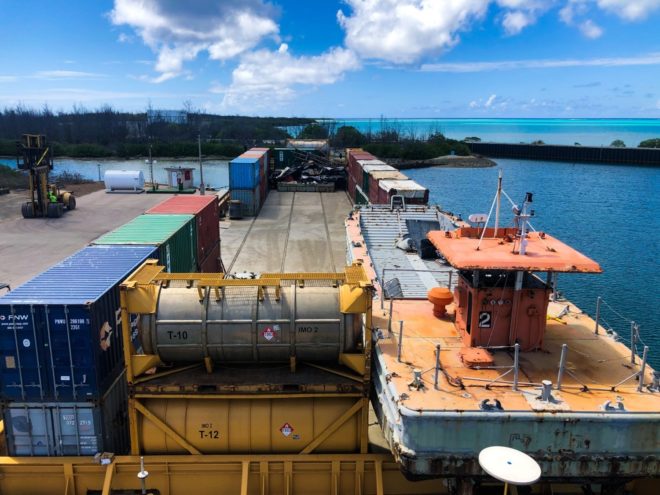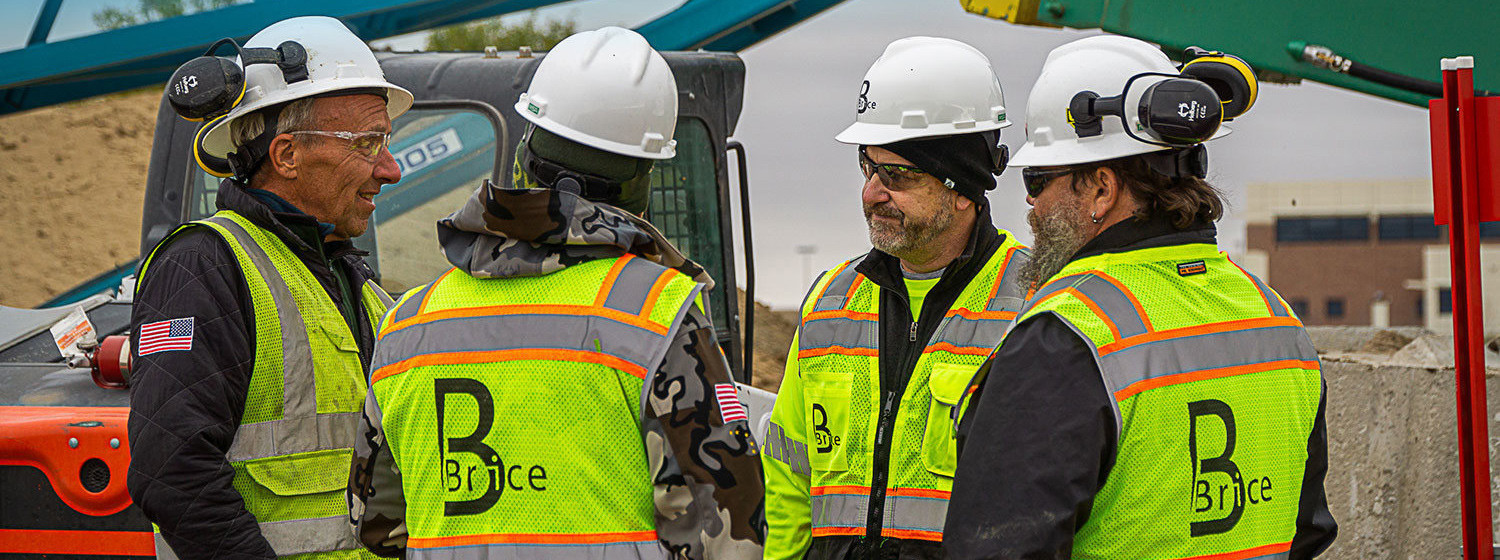
Brice’s Wake Island Program was one of few active sites when COVID-19 became a public health crisis and upended the solid waste removal project. Daily updates from the DoD and the Air Force began to flood email inboxes with new requirements and protocols to ensure the health and safety of everyone working on Wake island.
Some were easy to implement right away. Like the April 7th directive from the Secretary of Defense requiring the use of masks on island. The directive arrived into the inbox of Site Safety Officer, Jeremy Myers at 11:45 a.m. By 1:30 p.m., Jeremy and Camp Coordinator Amy Rasco had mined Brice supplies for materials and made 22 masks for the field crew using Brice work shirts.
“We were the first team to have masks on the island,” said Jeremy proudly. Though not mandated, Jeremy also took it upon himself to develop a COVID-19 Safety Plan for Wake that could easily be adapted for Brice projects on the mainland.
But more challenging was the mandatory 14-day quarantine put into place for all staff arriving into Wake Island. This posed a huge risk for the project’s time critical barge operations. Dual-hatted as Site Manager, Jeremy worked hand in hand with Construction Manager Marc Hobbs and Superintendent Erik Myers to find a way to keep the solid waste project moving forward without a 14-day delay. Marc explained.
“The barge was already headed to Hawaii but we weren’t sure if we could fly to Wake Island without going directly into a Level 1 quarantine, unable to work, leaving the barge idle in the marina at a cost of $25,000 a day, and run out of fuel. Our choices were to hold the barge in Hawaii and hope that the COVID crisis would blow over; or mobilize and then have the barge go on to Kwajalein Atoll and come back when the quarantine was over. We had several calls with our subcontractor, and our customer and client to come up with a plan. In the end, we agreed to a Level 2 quarantine based on how installations in Hawaii and Alaska were dealing with the situation. The Level 2 quarantine allowed us to work, but we had to isolate immediately after work. We rearranged the staffing plan so that the incoming team worked together at the marina unloading and loading the barge, while sharing all the same vehicles and equipment. The incoming team also lived and ate together at the Level 2 quarantine housing.”
“Our Brice staff already on Wake were assigned as truck drivers and equipment operators to transfer materials from the marina to our staging yard, and then move the solid waste stockpiles to the marina for the marina team to load onto the barge. This approach allowed us to socially distance while performing the work,” concluded Marc.
In the end, it wasn’t a major change of plans for the team but it consumed their attention for weeks, during the very dynamic and evolving situation that has characterized this pandemic. That said, the Brice Wake Island team pulled off the project in spades, avoiding a large potential financial loss on the project. The team even finished the work in less than half the original time budgeted for the barge turnaround, with no injuries. Nor did anyone contract the COVID-19 virus.
